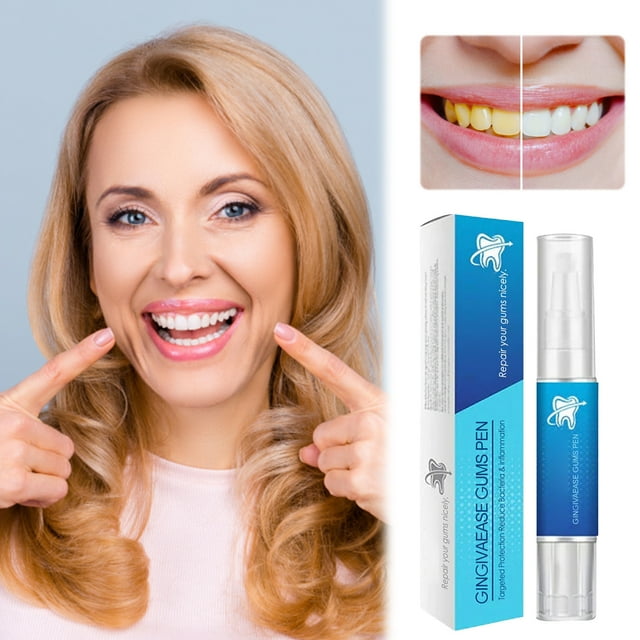How To Choose Good Gum For Teeth? Fresh Breath

The quest for the perfect gum to keep your teeth clean and your breath fresh is a journey many of us embark on regularly. With so many options available in the market, choosing the right gum can be overwhelming. However, understanding what makes gum good for your teeth and how it contributes to fresh breath can simplify this decision. Let’s delve into the world of gum and explore the ingredients and characteristics that make some gums stand out as beneficial for oral health.
Understanding the Basics: What Makes Gum Good for Teeth?
Gum can be more than just a breath freshener; it can also play a role in oral health. The key to its dental benefits lies in its ingredients. Look for gum that contains:
- Xylitol: This sugar substitute is known for its ability to prevent tooth decay. Xylitol inhibits the growth of Streptococcus mutans, a type of bacteria that contributes to tooth decay. It also promotes saliva production, which helps to rinse away bacteria and food particles.
- Fluoride: Some gums are fortified with fluoride, which is crucial for strengthening tooth enamel and preventing decay.
- Desensitizing Agents: For people with sensitive teeth, gum containing desensitizing agents like potassium nitrate can help alleviate sensitivity by blocking the dentinal tubules.
The Role of Gum in Fresh Breath
Fresh breath is often a sign of good oral health. Gum can contribute to fresh breath in several ways:
- Masking Odors: The most immediate effect of chewing gum is the release of flavorful ingredients that mask bad breath.
- Stimulating Saliva Production: Saliva is nature’s mouthwash, capable of rinsing away food particles and neutralizing acids. Gum that stimulates saliva production can help maintain a cleaner, fresher mouth.
- Antibacterial Properties: Some gums contain ingredients with antibacterial properties, which can help reduce the bacterial load in the mouth, a common cause of bad breath.
Selecting the Best Gum for Your Needs
When choosing gum for the health of your teeth and freshness of your breath, consider the following:
- Look for the ADA Seal: The American Dental Association (ADA) seal on a gum package indicates that the product has met certain standards for safety and effectiveness in preventing tooth decay and strengthening teeth.
- Consider Your Needs: If you have sensitive teeth, look for gum designed for sensitivity. If you’re concerned about decay, opt for a gum with xylitol and fluoride.
- Sugar-Free: Always choose sugar-free gum. Sugary gum can contribute to tooth decay, undermining the health benefits you’re seeking.
- Ingredients: Be mindful of the ingredients. Some gums may contain allergens or irritants. If you have specific allergies or sensitivities, read the label carefully.
- Clinical Evidence: Check if the gum’s benefits are backed by clinical evidence. Some manufacturers may claim benefits without substantial proof.
Tips for Effectively Using Gum for Oral Health
- Chew Regularly: For gum to be effective, it should be chewed regularly, ideally after meals, to stimulate saliva production and help wash away food particles.
- Don’t Overdo It: While gum can be beneficial, chewing excessively can lead to jaw pain and might not provide additional benefits beyond a certain point.
- Combine with Good Oral Hygiene: Gum is a supplement to, not a replacement for, regular brushing and flossing. Maintain a thorough oral hygiene routine alongside gum chewing.
Frequently Asked Questions
Is chewing gum beneficial for my teeth if I already brush and floss regularly?
+Yes, chewing gum can still offer benefits even if you maintain good oral hygiene habits. It can stimulate saliva production, which helps neutralize acids and remineralize teeth. Additionally, gum containing xylitol can help prevent tooth decay.
Can gum really make my breath fresher, or is it just a temporary fix?
+Gum can provide both temporary and long-term benefits for fresh breath. The flavorful ingredients mask odors temporarily, while the stimulation of saliva production and antibacterial properties can contribute to a fresher, cleaner mouth in the long run.
How often should I chew gum to see benefits for my teeth and breath?
+Chewing gum after meals and snacks can be beneficial. However, the frequency and duration can depend on individual needs. Generally, chewing gum for 10-15 minutes after eating can help stimulate saliva and aid in cleaning the mouth.
In conclusion, choosing the right gum involves understanding its potential benefits for oral health and fresh breath. By selecting gum with the right ingredients and chewing it as part of a comprehensive oral hygiene routine, you can enhance your teeth’s health and keep your breath fresh. Remember, gum is a tool to support your oral health habits, not a replacement for regular dental care.



